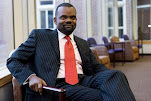The morning after the Democrats were trounced in two significant gubernatorial races in New Jersey and Virginia, Tom Joyner remarked on "The Tom Joyner Morning Show" that a large part of the blame rested squarely on Barack Obama’s shoulders. The Democrats lost, Joyner argued pointedly, because black people stayed home. And they stayed home because Barack Obama has basically ignored them since he’s become president. Noting sardonically that Obama was “around all the time” on the show during his historic run to the presidency but had yet to appear on his show after being elected, Joyner issued a warning to Obama. If he expected to get elected again in 2012, he’d better not forget about black America. When Joyner went to the phone lines, allowing his listeners to weight in on the topic, he was roundly lampooned. Recalling the heat that Tavis Smiley—a longtime commentator on Joyner’s show—took from the black community after admonishing then Democrat candidate Obama for failing to address black social concerns in his political agenda, Joyner found himself in the proverbial hot seat. One caller went so far as to label Joyner an “Uncle Tom” for his criticism of the president. The message that was coming across the lines was loud and clear. Criticizing Barack Obama—especially if you are black—is off-limits. Politics be damned.
The salient problem with this posture is that it confuses strategic political agitation with betraying the African American community’s best socioeconomic interest. It is not, in fact, a contradiction for one to be both proud of Barack Obama’s accomplishments from a cultural perspective and fiercely demanding of him on a political front. Maintaining such a posture is not only healthy for the democratic process, but necessary if one expects the black community’s concerns to get aired and taken seriously in the public domain. The uncontested king of the sound bite Al Sharpton put it best on Joyner’s show when he quipped, “We elected a president not a Messiah.” Unlike Joyner, however, Sharpton hoisted the blame for the gubernatorial losses onto the black community, arguing that blacks at the grassroots level need to become more active in the political process—namely, by supporting the president’s initiatives such as healthcare—if they expect their circumstances on the ground to change. And, perhaps on some level Sharpton and Joyner are both right. However it shakes out, the cold, hard truth is that the black community is in serious trouble economically and socially and nobody seems to notice. In their recent op-ed article, “The Destruction of the Black Middle Class,” acclaimed writer-activist Barbara Ehrenreich and inequality researcher-activist Dedrick Muhammad sound the alarm about the downward socioeconomic spiral of black middle class. Debunking the widely held notion that the socioeconomic circumstances for the black middle class are steadily improving over time, Ehrenreich and Muhammad point to a study by Demos and the Institute for Assets and Social Policy that reveals that at the start of our current recession—which officially began in December, 2007—“33 percent of the black middle class was already in danger of falling out the middle class.” They write that for the black middle class the recession actually began in 2000. Between 2000 and 2007, “black employment decreased by 2.4 percent and incomes declined by 2.9 percent.” During this stretch, “one third of black children lived in poverty and black employment—even among college graduates—consistently ran at about twice the level of white unemployment.”
The major headline a few days ago was that the national unemployment rate had tipped over the 10% mark. Quiet as its kept, the black unemployment rate at the beginning of the recession was already around 15% and will, in all likelihood, eclipse the 20% mark before the year is done. Moreover, the income gap between African Americans and whites is widening rather than narrowing. Suffice it to say that Africans Americans across class lines have very little reason to have hope at the moment. Not only should Tom Joyner be speaking up and out, but the black community should be backing him up rather than shouting him down. Insofar as Washington politics go, the squeaky wheel of mass public agitation gets the grease of media coverage and political attention. "Silence," however, as House Majority Whip James Clyburn warns us, "is consent." While the symbolic capital of having a black family in the White House and a black man at the helm of the presidency fills many of us with hope for our future, the reality is that hope won't explode structural inequalities, end poverty, secure jobs in the black community, improve our educational system, or pay our bills. "When you pray," goes the ancient African proverb, "Move your feet."

No comments:
Post a Comment